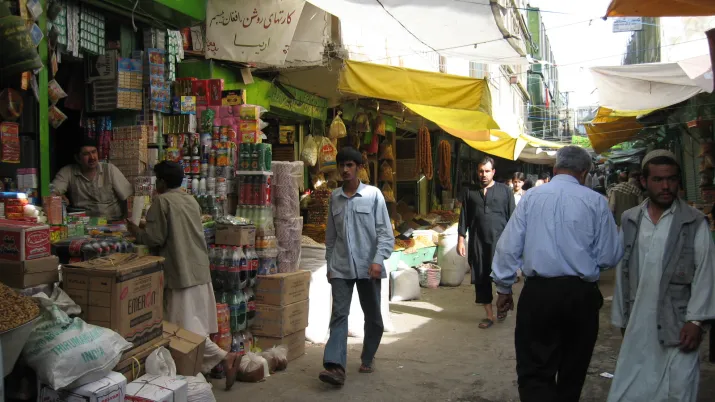News
Investing in clean energy in developing countries: can it pay off?
The two clean energy companies set up by Aloe Private Equity in Asia have demonstrated that investment in clean energies in developing countries can indeed pay off. Whilst Greenko Group in India has s...
Published on

Can venture capital funds be a source of investment for clean energy SMEs?
The Multilateral Investment Fund finances clean energy projects led by small and medium-sized enterprises in developing countries. MIF's experience in Latin America highlights some prerequisites for t...
Published on

Scaling up private equity investments in renewableenergy in developing countries
To attract private investors, returns on renewable energy projects in developing countries must offset the risks that are taken. Incentive policies, promoting loans with affordable guarantees and prov...
Published on

The challenges of triggering private investment into the energy efficiency sector
If global targets to reduce greenhouse gas emissions are to be met, it is essential to scale up energy efficiency development. Yet several obstacles prevent investors from getting involved and it is i...
Published on

Renewable energies and energy efficiency: Beauty and the Beast
Policies to develop renewable energies and energy efficiency are essential in order to tackle the looming energy crisis. Although least developed countries enjoy real potential, the required transform...
Published on

Financial Development and Economic Growth: Stock Markets versus Banks?
Economic theories diverge radically on the role that banks and markets play in the development of a financial sector – and the link they have with economic growth. It is essential to answer these ques...
Published on

How Can Development Partners Support the Financial Sector in Africa?
Although Africa's financial sector was not severely affected by the 2008 crisis, the latter did however reveal its structural weaknesses – including the narrowness of markets and the low level of cred...
Published on

What Are the Determinants of Financial Market Development in Sub-Saharan Africa?
Sub-Saharan Africa's financial markets are generally immature and are widely characterized by their low level of activity and the domination of the banking sector. However, if a market and its economy...
Published on

Motives for a Multiple Listing on African Stock Exchanges: The Ecobank Experience
In 2006, Ecobank Transnational Incorporated launched a simultaneous public offering operation on three African stock markets. €is exceptional listing gave the group greater financial flexibility, a di...
Published on

Listing on African Stock Exchanges: Many Advantages and Few Drawbacks
The international hotel group TPS EA's listing on the Nairobi Stock Exchange enhanced its visibility and reputation and fostered its commercial development. Moreover, by opening its capital to the gen...
Published on

Popular Shareholding in Africa, both a Political and Financial Tool
Popular shareholding in the context of Africa would seem doomed to failure, yet it has now become a major development area for African financial markets. This type of equity ownership seems to have me...
Published on

Recent Evolution of the African Financial Markets
Financial markets play an important role in financing Africa's private sector. Their recent growth in strength is unquestionable despite the sudden standstill caused by the 2008 crisis: sixfold increa...
Published on

The Economic Impact of the Development of Mobile Telephony: Results from a Case Study in Haiti
Haitian data confirm that mobile phone development acts as an engine for economic growth, what consequently brings a number of social benefits. However, a large part of the population remains excluded...
Published on

Rebuilding a Shattered Nation: The Impact of Wireless Communication and Mobile Banking in Afghanistan
In an extremely difficult context – that of Afghanistan at war – mobile phones provide users with some basic services that are essential for the country's reconstruction. The explosion in the developm...
Published on

The Impacts of the Mobile Phone Sector on Development: Mixed Results?
The expansion of the mobile phone sector in developing countries would appear to have obvious benefits. However, the conditions in which this takes place can sometimes be questioned. Deregulation in t...
Published on

How to Succeed in Developing Countries for a Mobile Telephony Operator? The Case of Milicom
Some mobile phone operators invested in developing countries very early on, whereas profitability seemed to be uncertain. If such investments are to be profitable, it is necessary to respect some key...
Published on

Mobile Phones, Markets and Firms in Sub-Saharan Africa
In Sub-Saharan Africa, the use of mobile phones has positive impacts on the way local consumer goods markets operate. Indeed, a study conducted in Niger shows that mobile phones help reduce costs and...
Published on

Mobile Telephony: A Transformational Tool for Growth and Development
The past 15 years have brought an unprecedented increase in access to telephone services in developing countries. This growth has been driven primarily by wireless technologies. Mobile phones have mad...
Published on

The African Mobile Phone Market: Beyond the Boom Phase, Between the Promise and Uncertainty of Maturity
The growth of African mobile markets over the past decade has been dramatic and well documented. Its impact has been far-reaching, directly through large capital investments and the emergence of large...
Published on

Microfinance: on the road to responsible finance?
Although serious abuses may be in the minority, the microfinance sector is not without flaws – or temptations. Some highly competitive markets put considerable pressure on costs to the detriment of se...
Published on

